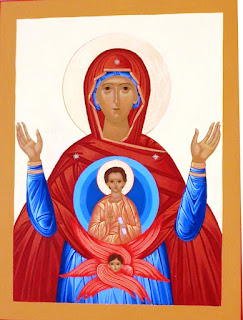Since today is the Feast of the Transfiguration of the
Lord, it seems appropriate to focus in this reflection on the importance that
the Word of God has in St Dominic’s life and preaching. It can be said that St
Dominic truly lived and was granted the grace asked for in today’s opening
prayer: “grant, we pray, to you servants, that, listening to the voice of your
beloved Son, we may merit to become coheirs with Him.”
We know that he always carried with him on his
journeys one of the Gospels and the letters of St Paul
Most of the Ways of Prayer (e.g. the Second,
Third, Fourth, Sixth and Seventh
Ways
In the Fifth Way
The Eight Way of Prayer, is much like
what we now speak of as Lectio Divina: Dominic “in the spirit of devotion
roused in him by the divine words chanted in choir or in the refectory, would
go speedily to some solitary place, in his cell or elsewhere, to read and pray
by himself and in the presence of God. … then he felt his soul gently moved, as
if he heard the Lord speaking.” This image of Dominic prayerfully contemplating
the Gospels is particularly familiar thanks to Fra Angelico’s presentation of
the Crowning with Thorns.
The Ninth Way
“In the opinion of the Brethren, it was by praying
thus that the Saint attained that fullness of knowledge of the Holy Scripture,
penetrated into the very marrow of the sacred words, acquired the holy daring
of his ardent preaching, and lived in that intimate familiarity with the Holy
Spirit from which he drew the knowledge of hidden things.”
May our holy Father Dominic intercede for us, that we
may have the same ardent love for the Word of God and may imitate him and our
Lady in treasuring the Word of God and pondering it in our hearts (Lk 2:19).





































